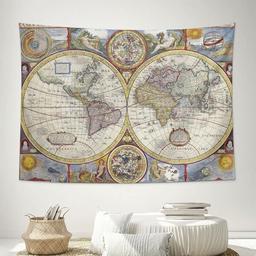
Unit 1 Review APWH
Quiz by McNally, Tiffany L.
Feel free to use or edit a copy
includes Teacher and Student dashboards
Measure skillsfrom any curriculum
Tag the questions with any skills you have. Your dashboard will track each student's mastery of each skill.
- edit the questions
- save a copy for later
- start a class game
- automatically assign follow-up activities based on students’ scores
- assign as homework
- share a link with colleagues
- print as a bubble sheet
- Q1
The Tang and the Song Dynasty in the period of approximatly 600-1300 CE is considered
the "Golden Age" of China
Cesar Papism
Selective Nationalism
Divine Right of Kings
30s - Q2
All of the following statements regarding China from 1200-1450 are true EXCEPT
Trade routes were nearly abandoned as a result of less Chinese focus on trade
Women's standing in society was very low, as demonstrated by footbinding
Chinese political systems and cultural beliefs were adopted by other nations in East Asia
The success of the individual was more important than the success of the community
30s - Q3
Which of the following pieces of evidence most strongly supports the author’s conclusion about the importance of exotic goods to the Maya region’s economy?
Exotic goods were traded between the Maya city-states and neighboring states.
The exchange of exotic goods went hand in hand with the exchange of information
The Maya region depended on the trade in exotic goods because of relatively low levels of agricultural production.
Exotic goods were exchanged over long distances within the Maya lowlands.
60s - Q4
The author directly uses all of the following pieces of evidence to support his argument about the relationship between exotic goods and the power of Maya rulers EXCEPT that Maya rulers
received exotic goods as tribute payments from vassals
used exotic goods in royal coronations
used exotic goods to carry out rituals that their subjects expected them to perform
prohibited nobles and priests from wearing certain types of exotic goods reserved for rulers
30s - Q5
Which of the following does the author cite most directly to support his argument in the third paragraph about the importance of exotic goods in the Maya region?
The existence of sophisticated astronomical tables
The emergence of new systems of writing based on earlier Mesoamerican systems
The emergence of a unified Maya kingdom based on new political models
The existence of unified patterns of behavior in warfare, science, and religion
30s - Q6
The terminology used in the opening sentence of the decree was most directly influenced by which of the following?
The medieval rules of chivalry and courtly etiquette
The notion that the Pope is the supreme leader of the Church
The slow and uncertain nature of communications in medieval Europe
The deep influence of Christianity on medieval society and culture
30s - Q7
The process of “consultations with the nobles and clergy of the realm” in the making of Edward III’s decree best reflects which of the following?
European rulers’ practice of making harsh legislation more palatable by claiming it was part of God’s will
The emergence of the concept that parliaments, rather than kings, had ultimate political authority in European states
The legacy of Roman imperial political traditions on medieval European states
The fragmented, decentralized nature of European feudal monarchies
30s - Q8
The need for legal action to address the “grave inconveniences” that might result from the labor shortages described in the passage most likely resulted from
the presence of guild regulations prohibiting agricultural laborers from working more than a certain number of hours each week
the high social rank and economic standing of plowmen in medieval English society
the inability of members of the nobility and other feudal lords to take direct legal action against their workers and serfs
the agrarian nature of medieval European economies and their reliance on coerced labor
30s - Q9
Dar al-Islam means 'house of peace' and refers to the dominion of Islam, namely, any structure (be it a home, community, or state) that allows the free practice of Islam. Which regions from this map are concidered a part of Dar al-Islam in the period of 1200-1450 CE?
Europe and Asia
Spain, Egypt, France, Byzantium
Espanola, North Africa, Persia
Saudia Arabia, Africa, Rome
30s - Q10
What was MOST responsible for the spread of Islam throughout the map?
Cultural exchange along trade routes
Cultural infusion through religious adaptations
Conquest and Genocide
Social intermarriage
30s - Q11
The system of Feudalism developed out of a need for
migratory patterns of Germanic peoples
poverty and environmental disaster
protection from invaders
protection from Islamic conquest
30s - Q12
Southeast Asia mainly structured their environment around
Social heirachy known as the Caste system
Statues of gods
Economic trading practices
Hindu temples
30s - Q13
Confusionism believe and practices centered around
worship of ancestors
education and scholarship
venoration of idols
ethics and morality
30s - Q14
Underder the Ayyubid sultanate, Mamluk generals used their power to establish a dynasty that ruled Egypt and Syria from 1250 to 1517.
a member of one of the armies established during the Abbasid era that later won political control of several Hindu states.
a slave soldier, a member of one of the armies of slaves established during the Abbasid era that later won political control of several Muslim states.
Abbasid era elite that later won political control of several Muslim states.
a warrior, a member of one of the armies established during the Abbasid era that later won political control of several Muslim states.
30s - Q15
Compare and contrast the Inca and the Maya
The Maya and the Inca enjoyed the protection of the mountanous terrain.
The Inca built huge structures, but the Maya only lived in mounds.
Politically the Maya were a collection of city-states while the Inca were ruled by an absolute dictator.
The Maya and the Inca were both defeated by the Spanish.
30s